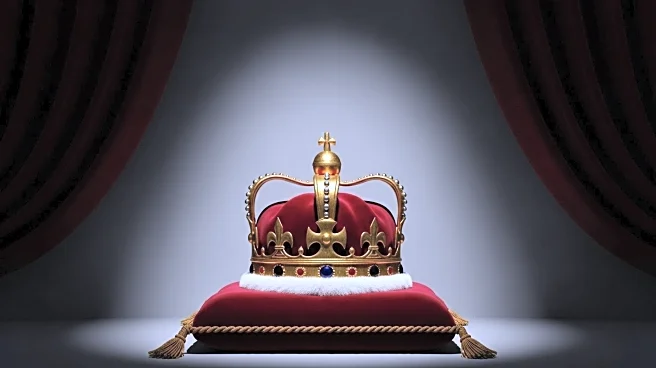What is the story about?
What's Happening?
A fake Vanity Fair cover featuring First Lady Melania Trump wearing a crown has sparked controversy, with California Governor Gavin Newsom being criticized for his own 'king' imagery. The cover, labeled 'The American Queen,' was circulated on social media following reports of a staff mutiny at Condé Nast over potentially featuring Mrs. Trump. Prominent MAGA influencers praised the faux cover, while Newsom's team posted an image of him wearing royal headgear, leading to accusations of hypocrisy. The White House described Newsom's actions as 'creepy,' and Melania Trump reportedly laughed off the idea of the cover, prioritizing her duties as First Lady over photo shoots.
Why It's Important?
The incident highlights ongoing tensions between political figures and media portrayals, reflecting broader societal debates about leadership and representation. Newsom's imagery has drawn criticism for contradicting previous anti-monarchy sentiments expressed by Democrats. This controversy underscores the polarized political climate, where symbolic gestures can provoke significant public and media reactions. The faux magazine cover and Newsom's response may influence public perceptions of political figures and their authenticity, impacting voter sentiment and political discourse.
What's Next?
The controversy may lead to further scrutiny of media portrayals of political figures and their implications. Newsom's actions could prompt discussions about political branding and the use of imagery in political communication. As the 2028 election approaches, such incidents may influence campaign strategies and voter engagement, with potential repercussions for Newsom's political aspirations and the Democratic Party's image.
Beyond the Headlines
The incident raises questions about the ethical use of imagery in political discourse and the role of media in shaping public perceptions. It highlights the power of visual symbolism in political narratives and the potential for such imagery to influence public opinion. The controversy may also reflect broader cultural shifts in how political figures are perceived and the expectations placed on them by the public.

















